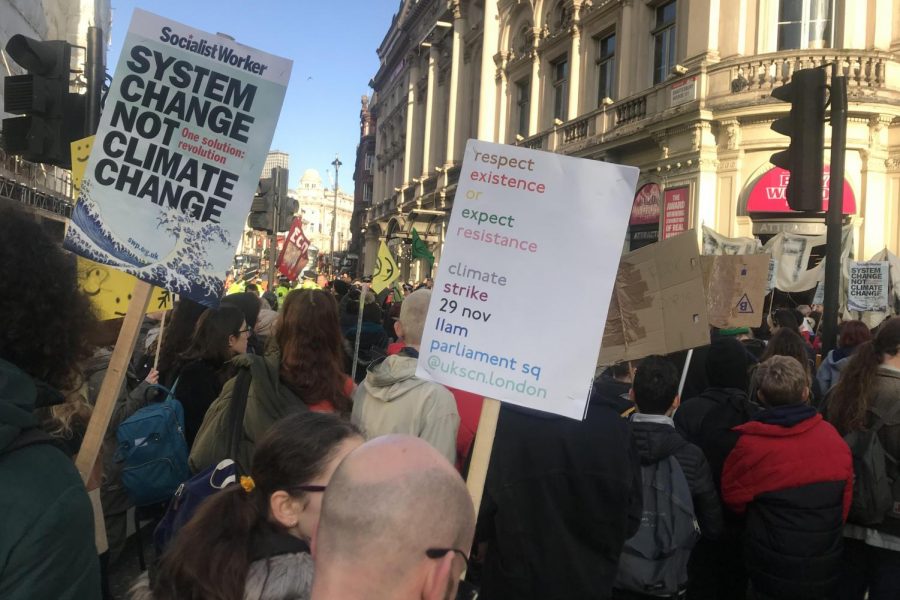Throughout the last couple of years, there has been an apparent rise in youth activism. Generation Z has demonstrated vigorous interest in and passion for social justice issues. Students from all around the world have shown advocacy by organizing street protests and raising awareness on social media platforms and in school communities. However, the question that I continuously ask myself is: How much of the topics they are protesting about do the youth understand?
As a student a part of Gen Z, I, too, am guilty of this problem. I am entirely aware that my understanding of current events is not as profound as it could be—for example, Brexit. Since I didn’t know much about the topic and its effects, I didn’t feel comfortable advocating for this issue and participating in the protests.
However, the majority of teens and students don’t hold back from the idea of fighting for justice or holding a stance on the issue. There is an understandable feeling of power and satisfaction that comes with fighting for change.
Regardless, the best activists are those who demonstrate open-mindedness and nuance in their understanding of the topic. Activists should still be able to acknowledge both perspectives without compromising their beliefs.
These individuals show maturity and will be the people who are ultimately successful in creating change.
Therefore, to increase the success of student activists, there should be more of an emphasis on educating kids on current events and global issues in schools.
There are two main driving factors for such a vague understanding of current events: the reliance that adolescents have on social media and a general lack of motivation and interest.
In an issue of The Standard print edition, a feature written by Zainab Shafqat Adil, explored ASL’s high school students’ thoughts on the necessity of keeping up with current events. The article contained a survey where students were asked how important they think it is to keep up with current events.
71.7% of students said that it is “very important,” while 27.2% said it was “somewhat important.”
Contrastingly, in another survey, 80% said that they did not feel motivated to stay up to date with current events, and 20% said they were motivated.
It is evident that although students understand that being knowledgeable about current events is essential, their motivation to stay up to date with current events does not reflect this belief. The reason for this lack of motivation, in my opinion, is due to an insufficient amount of interest.
It is essential to recognize that it is entirely natural for an individual to be more interested in the topics that directly concern them. An American might be more interested in the 2020 Presidential elections than, say, Brexit. A feminist might be more interested in the #MeToo movement than the Central American migration crisis. Although many individuals are guilty of this trait, it does not justify it.
This lack of interest represents narrow-mindedness and, to a certain extent, ignorance. For instance, without knowledge on Brexit, how can we choose which candidate is best to deal with the issue and maintain international relations for Britain? Without knowledge of immigration injustice, how might an equal rights activist incorporate their solutions into the crisis? As global citizens, it is the responsibility of every individual to strive to maintain an adequate understanding of international affairs and current events.
Therefore, there should be more of an emphasis on educating this in schools.
In addition to this overall lack of interest and motivation, the usage and influence of social media dramatically limit one’s understanding of current events.
Through social media, one can put a video of, for example, the Australian fires on an Instagram story; however, reading a full article on the causes and effects takes more time and effort.
On social media, you can share jokes and memes on WW3, but reading about the tension between the US and Iran requires much more thinking.
Through social media, we can listen to our favorite influencer’s opinions and thoughts on certain topics, but going to an analytical article to understand both perspectives requires more effort and open-mindedness.
A survey sent out by Common Sense Media said that “nearly three in 10 teens (29%) get their news from social media every day.” About as many, 23%, get their news just from digital news aggregators or from phone notifications.
Many implications are resulting from social media being teens’ primary source for learning about current events.
Social media is a beneficial platform used to spread and express ideas, communicate with others, and more. The overriding problem is the fact that social media consists of millions of accounts made by people with their own bias and opinionated views.
Teenagers that rely on their favorite social media influencers for information are more likely to get opinionated, rather than fact-based information. Without a general understanding of both sides, how is one supposed to form a strong argument addressing why their opinion overrides the other?
Even by using popular and reliable sources like BBC News or the Guardian, according to Common Sense Media.com, 64% of teens prefer “seeing pictures and a video of what happened.”
In comparison, just 36% say that they would prefer reading or hearing the facts. Watching a video or seeing pictures isn’t enough to truly understand current events, making social media a shortcut for learning about the news, thus resulting in an overall lack of knowledge.
Of course, social media usage will only keep increasing, therefore making it essential for our school to place more of an emphasis on educating teens on current events.
Along with student publications, classes should begin by watching or reading the news from reputable outlets and then follow with brief discussions.
By doing this, not only can we intellectually grow as a community, but we can form more of an adequate understanding of a variety of different current events and global issues. Our generation is eager to fight for change, but without an understanding of the issues at play, that fight is useless.






